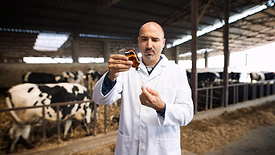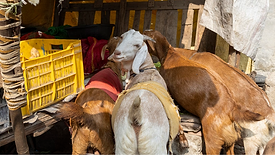Dairy/Eggs
Outbreaks of Foodborne Illnesses and Recalls Associated With Ice Cream and Frozen Dessert Products
Reports in the literature indicate that ice cream has been associated with illnesses linked to numerous pathogens, including Listeria, which can cause severe illness
Brett Weed M.P.H., M.S.
Karunya Manikonda M.P.H.
Allison Wellman M.P.H.
Greg Gharst Ph.D.
Matthew Doyle D.V.M., M.P.H.
Amanda Conrad M.P.H.
Alexandra Palacios M.P.H.
Melanie LaGrossa M.P.H.
Stelios Viazis Ph.D.
July 1, 2024
Never miss the latest news and trends driving the food safety industry
eNewsletter | Website | eMagazine
JOIN TODAY!Copyright ©2024. All Rights Reserved BNP Media.
Design, CMS, Hosting & Web Development :: ePublishing










